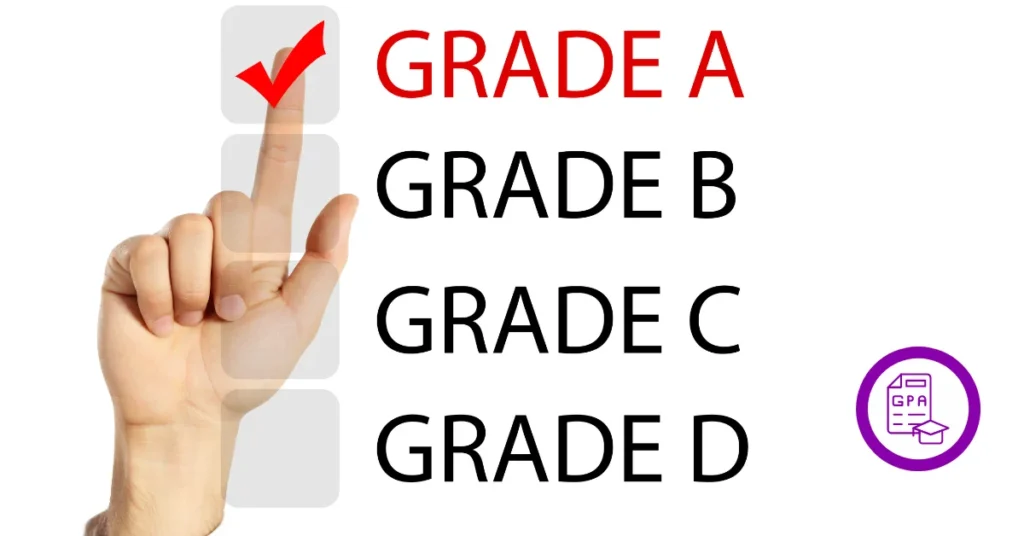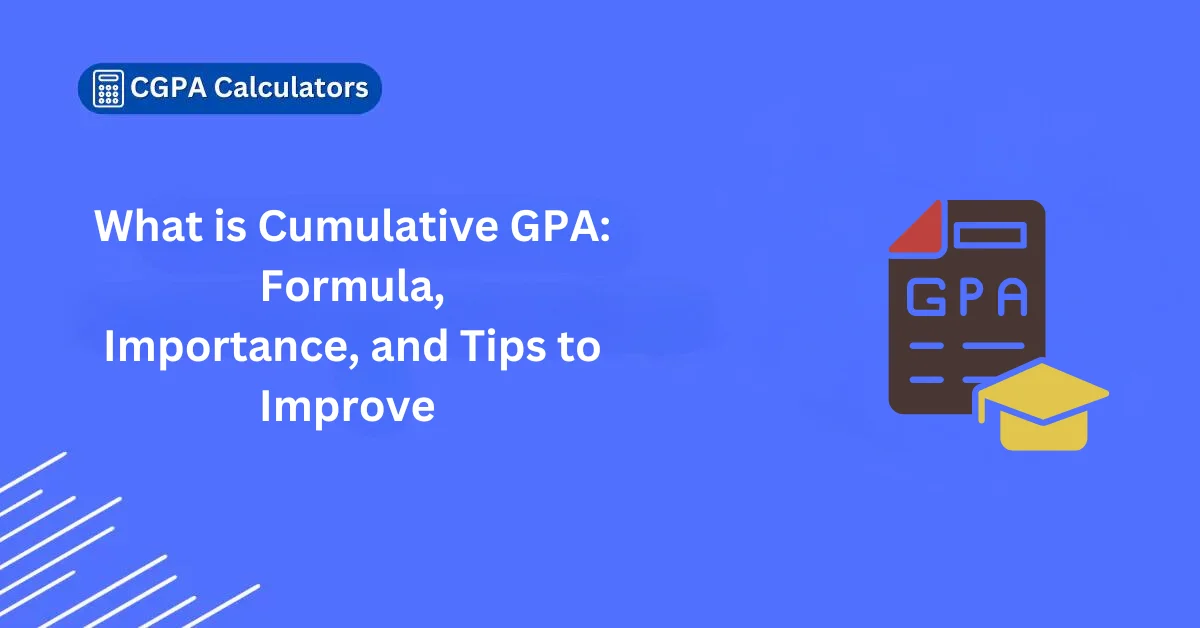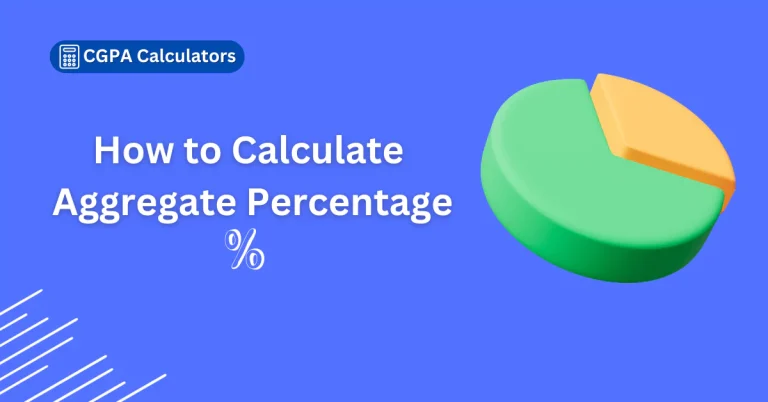What is Cumulative GPA:Everything You Need to Know
GPA is an important term used in academics that students understand.
But what is cumulative GPA and how it differs from GPA?
Cumulative GPA or cumulative Grade point average is an overall GPA for a specific period, like multiple semester or an entire academic program.
However, some students have confusion about how to calculate it and how can we improve it!
Here, in this post, we cover all your doubts and explain everything along with its importance.
What is Cumulative GPA?

Cumulative GPA is the overall grade point average of your combined semesters and all the courses in academics.
In simple term, It is a score that measures how well you are doing in your studies.
Cumulative GPA uses in various ways like applying to a new job or submitting a college application for admission.
It is essential for various reasons in academics.
However, some colleges require aggregate percentage for admission and scholarship as well!
Understanding GPA Scores
Before we dive into cumulative GPA, let’s quickly cover what GPA is.
GPA is a score that shows how well you’re doing in your courses. To measure this, there are numbers between 0 and 4, where:
- 4.0 represents an A (excellent performance)
- 3.0 represents a B (good performance)
- 2.0 represents a C (average performance)
- 1.0 represents a D (below average performance)
- 0 represents an F (failing)
Each grade you receive in a course contributes to your overall GPA.
How is Cumulative GPA Calculated?
You can easily calculate your academics’ performance by cumulative GPA calculator percentage.
To calculate your cumulative GPA, we require two things:
- Total grade points: This is the sum of the grade points for all the classes you have taken.
- Total credits: This is the total number of credit hours for all those classes.
The formula for cumulative GPA is simple:
For example, if you’ve taken 4 classes worth 3 credit hours each and earned 4.0, 3.5, 3.0, and 3.6 as your GPA for those classes, you would multiply each GPA by its respective credits, add them up, and divide by the total number of credits.
Why is Cumulative GPA Important?

Many universities offer tools to convert your GPA to percentage and percentage to GPA for more accurate grade comparisons.
However, why cumulative GPA is important, it is still a question for many students!
- Scholarships and Awards: Cumulative GPA is required for many scholarships and academic awards.
- Graduation Requirements: Schools often have a minimum cumulative GPA requirement for students to graduate in many states and countries.
- Higher Education: Many colleges require good GPA score in your academics for admission in higher education.
4. Job Applications: Some employers, especially for internships and entry-level positions, may consider your cumulative GPA when evaluating your academic performance.
How Can You Improve Your Cumulative GPA?

If you would like to convert percentage to GPA 4.0 scale, 5.0 scale, and 10.0 scale you can easily calculate it within seconds.
A good grade point average(GPA) is required for everything from getting a higher education to getting a job.
Improving your cumulative GPA can be a challenge, but it is not impossible.
Here is how you can work towards a higher GPA:
- Focus on each class:
You should focus on studies in your academics.
Even one good grade can boost your cumulative GPA.
You can use some practical tips to focus on studies to improve your GPA.
- Plan ahead:
Take classes that align with your strengths.
Everyone has subjects they are naturally better at, whether it’s math, science, literature, or the arts.
By selecting courses that align with what you’re already good at, you’re more likely to perform well, earn higher grades, and boost your GPA.
While focusing on your strengths, don’t shy away from challenging courses.
Just balance them out with subjects you know you can excel in to maintain a strong GPA
- Ask for help:
Reach out to teachers or tutors if you are struggling.
Never hesitate to ask for help when you are struggling with a subject or concept.
You can connect with respective subject teacher to solve any kind of problem or issue.
By seeking help when needed, you can overcome academic challenges more quickly, maintain strong grades, and improve your cumulative GPA.
- Manage your time:
Proper time management leads to better preparation for exams and assignments.
You should use time management techniques to save your time and that time you can use in your studies.
There are many apps and games to learn some techniques and formula.
Time management is key to academic success and can significantly impact your cumulative GPA.
Managing your time well means you are prepared for classes and exams, reducing stress and increasing your chances of achieving higher grades.
Conclusion:
Your cumulative GPA is a reflection of your overall academic efforts and achievements.
Calculating cumulative GPA is an easy and practical process that can be used in many areas.
While it is important for things like scholarships, graduation, and even job applications, it is not the final word on your abilities or potential.
Remember, a strong cumulative GPA is the result of consistent effort and learning from both your successes and challenges.
Stay focused, keep improving and you can easily get cumulative GPA.
Happy calculating!
FAQs:
Q1. What is a decent cumulative GPA?
Ans. GPA between 3-3.5 is decent cumulative GPA.
Q2. Do colleges want cumulative GPA?
Ans. Yes, many colleges give you admission on the basis of good cumulative GPA.
Q3. What is a bad cumulative GPA?
Ans. GPA between 1-1.5 is bad cumulative GPA.
Q4. Does my cumulative GPA matter?
Ans. If you want to get admission in graduation in any medical or business school, your GPA really matters a lot.







